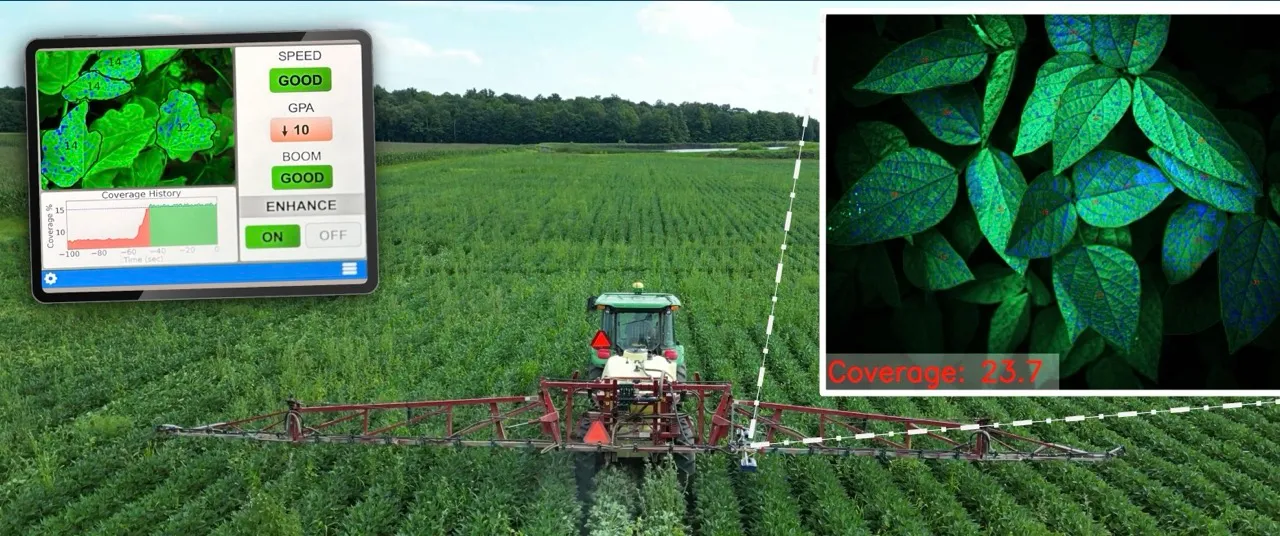In a 2021 study, it was discovered that farmers would experience a significant decline in crop production if they refrained from using pesticides, with estimates showing a potential loss of 78% of fruit production, 54% of vegetable production, and 32% of cereal production. However, the conventional method of pesticide application poses challenges: it often involves spraying excessive amounts of pesticides to ensure adequate coverage, leading to financial burdens for farmers and environmental concerns.
Enter AgZen, a company rooted in over a decade of MIT engineering research, offering a novel solution that leverages artificial intelligence (AI) to optimize pesticide application, ensuring precise and efficient coverage. Vishnu Jayaprakash, the company’s CEO, shared with TechCrunch that their technology, RealCoverage, can detect droplets as small as 150 microns and provides real-time adjustments to spray parameters such as pressure, rate, boom height, and speed. AgZen claims that this approach enables maximum application efficiency, even at speeds of up to 12 mph.

The implications of AgZen’s technology are substantial. By implementing their algorithms and optimizations, farmers could potentially reduce chemical usage by up to 50%, thereby cutting input costs significantly while maintaining crop health and yield. AgZen has conducted extensive field trials over the past three years, including 12 successful pilots and trials across the U.S. and Europe with some of the largest growers globally.
The true beneficiaries of this innovation may be public health and the environment. With studies indicating widespread contamination of agricultural water sources and soil due to pesticide runoff, there is a pressing need for solutions in the agricultural technology (agtech) sector. By reducing foliar pesticide usage by 30% to 50%, AgZen’s technology could help mitigate these impacts, addressing the urgent requirement for improved spray efficiency highlighted in recent reports.










